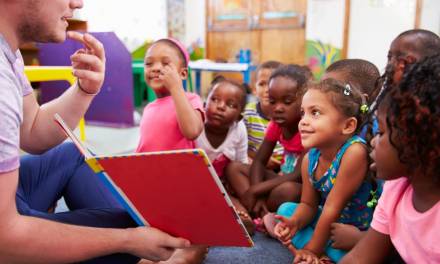The term is now well underway and students are settling into routines and the demands of work as their learning continues.
We know that building our professional relationships with students is a cornerstone to the responses we receive from children and young people through their learning. We also know that the reliability and trust we build with our students forms the basis of the social and emotional support we provide.
Having worked with many children and young people whose lives are dominated by uncertainty, chaos and disturbance, I found myself constantly reminding adults that sometimes we are the only adults in a child’s world who act as adults should and of the potential reactions to this by children.
Most seek and thrive on the reliability we provide but there are some who reject all adults as they are used to adults letting them down and are in the process of building emotional independence and an emotional resilience that contrasts with their developmental stage.
Teachers are trusted
Just reading an excellent article by the Centre of Expertise on Child Sexual Abuse that teachers are the professionals to whom children most commonly make initial disclosures. They do so because they trust the adult who displays the key characteristics the child identifies in their assessment of ‘trustworthiness’.
Another key factor in child disclosure is the opportunity to disclose and it is interesting to note that children disclose both verbally and non-verbally consider the actions and behaviours that give us cause for concern.
My point here is that whilst building trust, we also build opportunity and whilst we may go through our entire career without any hint of a disclosure, we should always be prepared for the time when we are called to act on a disclosure or other concerns.
Disclosure and support
Making sure we know how to deal with concerns, who to speak to and importantly, how to respond to a child’s disclosure are vital if we are to support a child at this time of critical need. The safeguarding training that we all participate in could be the most important training you’ve ever had when you encounter a situation of this nature.
I would urge all staff to engage in discussion about how to deal with a disclosure or concern so that you can improve preparedness should such a time arise. For children, a school with trustworthy, reliable adults is regarded as a suitable safe environment to share distressing and traumatic experiences.
Whilst the aforementioned report talks about teachers, I recall the most serious safeguarding case I have ever encountered that ended in a serious case review started with the excellent work by a teaching assistant. Our TA used every ounce of their training and experience to identify concerns and report them immediately through the appropriate channels whilst being there for the child at such a significant point in their life.
We know the value of trust and reliability and we owe it to ourselves and the children we work with to make sure we know what to do should the time arise when we have to act.
Paul is a former headteacher of primary and secondary pupil referral units for children with social, emotional and mental health needs. A former youth worker, Paul is also a qualified counsellor and spent many years delivering and managing counselling, well-being and pastoral services for young people in education. Paul is an EDLounge Associate Consultant and provides advice on curriculum development, teaching and learning and measures to support young people facing the personal challenge of managing mainstream education.










